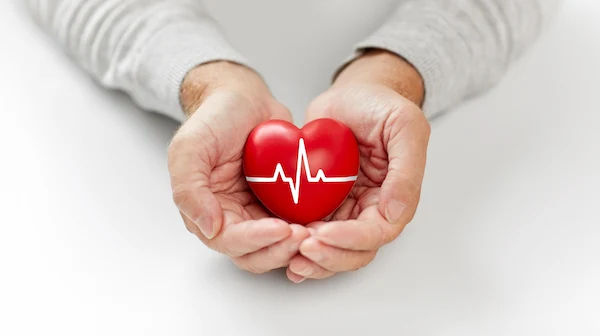- female
- 60 Years
- 20/02/2025
I'm really concerned about my mom. She had a heart attack at the end of October and initially had some anginal pain, but the meds seemed to help for a couple of months. After an angiography, her doctor found an 85% blockage in the LCX OM artery and decided to do an angioplasty. I was hoping that would improve things, but a month later, her LVEF dropped from 45 to 32. Before the angioplasty, her heart was stable, and the dimensions of the left atrium and ventricle seemed normal, but now they're dilated. I was expecting her to get better after the angioplasty and I'm really worried. It's just me and my mom, and I need some guidance on what could be happening. Can you help?
Answered by 1 Apollo Doctors
The drop in LVEF after angioplasty may be due to various factors such as the extent of the heart muscle damage from the heart attack, the response to the stent placement, or potential complications post-procedure. To help improve her heart function and prevent further deterioration, her doctor may consider adding medications like Carvedilol (Coreg) to help improve heart function and reduce strain on the heart. Additionally, medications like Lisinopril (Zestril) may be prescribed to help reduce the risk of future heart-related events. It's important for your mother to follow up regularly with her cardiologist for monitoring her heart function and adjusting her treatment plan as needed. Encouraging her to maintain a healthy lifestyle with a balanced diet, regular exercise, and stress management can also support her heart health. Stay positive and supportive for your mother during this challenging time
Dr. Ranjith Suggests...
Consult a Cardiologist
Answered 04/07/2025
0
0


Ask Apollo
AI powered Health Chatbot
-
Heart Function Decline
a. The drop in LVEF suggests worsening heart function, possibly due to heart muscle damage or inadequate blood supply. -
Dilated Heart Chambers
a. The dilation of the left atrium and ventricle may indicate heart failure or cardiomyopathy. -
Recommended Actions
a. Consult a cardiologist for a detailed evaluation.
b. Consider medications to manage heart failure and improve heart function.
c. Regular follow-up and possibly further imaging or tests to assess heart health.
Recommended next steps
Consult a Cardiologist
Answered 10/09/2025
0
0
More Cardiology Health Queries
View allI'm feeling really uncomfortable with my chest. I've got this back pain, and it feels like there's tightness there too. Initially, it was on the right side, lower down, but now I feel it on the left side, just above my stomach. It's not exactly painful, more like a feeling of tightness. I've also been having some heartburn. Should I be concerned about this, and what might it be?
take tablet pantop for 5 days
Answered by 1 Apollo Doctors
I'm looking at my ECG results and noticed a short PR interval of 104ms and a heart rate of 77 BPM. Is this something I should be worried about? What kind of care or steps should I take to address this?
Short pr interval probable diagnosis include sress, ectopics, junctional rhytmss,wolff-parkinsons -white syndrome (WPW) ,anxiety, etc.. A cardiologist opinion is advised..Salt restricted diet and dash diet is advised .Regular aerobic exercises is also advised to the patient..
Answered by 1 Apollo Doctors
I'm 16 and recently had an electrocardiograph that showed I have incomplete RBBB. The doctors mentioned it might be related to my tonsils because they get inflamed a few times a year, and they're suggesting I get them removed. I tried finding more info about this link between tonsils and RBBB but didn't come across anything helpful. Could you explain how they're connected or if you've seen anything like this before?
take medicine & consult doctor
Answered by 1 Apollo Doctors
Disclaimer: Answers on Apollo 247 are not intended to replace your doctor advice. Always seek help of a professional doctor in case of an medical emergency or ailment.




